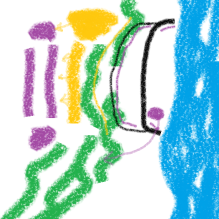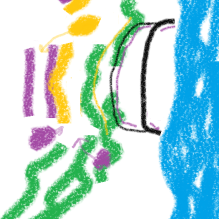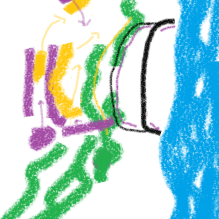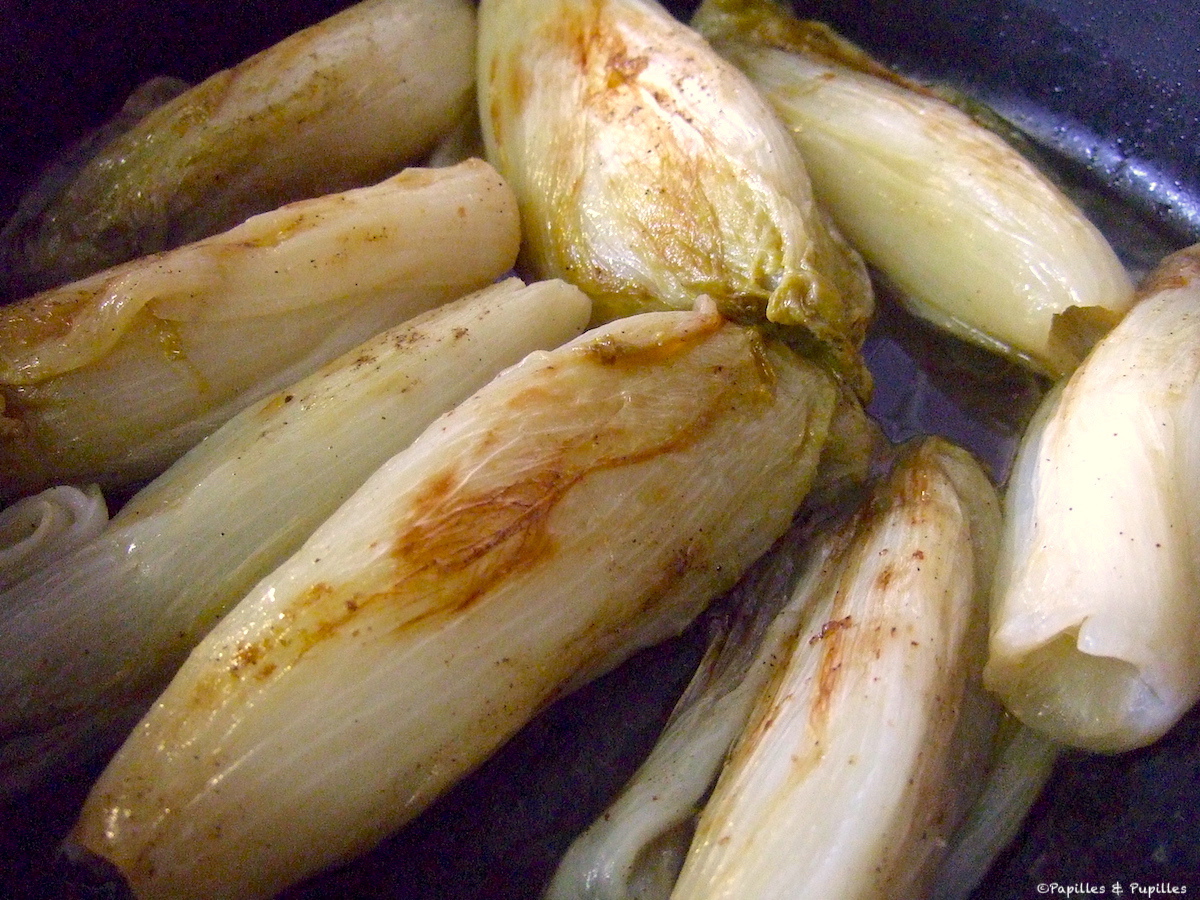Hecatee
Donor
The sea of Grass, somewhere between the Tyras and the Hispalis, June 180
Had any man been able to see them from above, he’d have been amazed by the display of sheer power put by the Roman army. They seemed to cover the horizon and made a great plume of dust rise in the air behind them.
Four legions of 6500 men, one made of two vexilations, each legion with 4 auxiliary units of some 1500 men each, and the personal guard of the Caesar made for a strong force of some 50000 men of which some ten thousand were mounted, including 2000 heavy cataphractii on the sarmatian pattern. To that a larger than usual number of mules and their drivers had to be added, carrying food for the troops in a region were foraging for anything else than the horses’ feed was impossible.
The cavalry was mainly in the vanguard and on the flanks, with about a thousand horsemen to close the march. In the center the legions did not walk in a single column but as four parallel units, with the infantry of the auxiliary units in a diamond pattern around the legion. The auxiliary units changed position every day so that none would walk more than twice a week into the excrement of the units preceding them...
The wide spacing meant that the men did not walk through too much dust from the previous ranks, but it also made their approach more visible as a larger column of dust rose in the blue sky, making their progress evident to all and appearing as a act of the gods rather than one of men.
Yet this was not something never seen in the region : the larger scythian tribes, with their massive horse herds and the heavy chariots of their families, often made similar dust plumes when they travelled the sea of grass.
This is why the tribes of the steppe had designed tactics to deal with the telltale mark so as to achieve surprise against their foe, and they were about to spring such a trap. The Gothii had found many tribes on their way south, some attached to the concept of land, other not so much for all they cared was grass for their horses. Those tribes, known under the generic name of Scythia, divided themselves in clans and tribes, never very stable, often open to foreigners. Those Scythians living in the west of the Sea of Grass had seen a number of refugees in the last few decades, coming mainly from the Sarmatian noble families that Rome had defeated in the time of the divine Hadrian.
The refugees had become more nomadic than in the past but had given their welcoming neighbors their hatred of Rome and all it represented. Thus while the Gothii had had to fight against the land working Bastarnae, they had found allies in the western Scythians who provided them with intelligence and, more importantly, a cavalry.
Filimer had rejoiced at the news of the alliance, for it offered him opportunities to fight against the Romans on more equal terms. Some ten thousand horsemen, four thousand of which were armored, provided a strong weapon which he intended to use to the fullest, starting on this day…
Now the king of the Gothii stood on a horse along one of his main allies, Gtalos. Neither man intended to fight in the battle, only a large ambush against the rear guard cavalry of the Romans, but it was expected of them to be there for the fight. They had brought five hundred light horsemen with plenty of arrows for their bows, and they expected to fight about two thousand Romans in this hit and run engagement. A second, larger group, camped further back from the Romans with a thousand men.
Sneaking at night close to the Roman encampment, they had found a gully where to hide horse and men until the Romans started their day’s walk : they wanted the legions to raise their dust cloud so as to be able to use it to fall against the rear guard, appearing from the cloud like demons, firing a number of arrows before the Romans even saw their attack, falling back into the dust before they could retaliate : should the Romans come into the cloud they would then be ambushed by the second group…
The Romans had now dismantled their night camp. Their officers made a small group on the side, some two hundred and fifty men with their bodyguards, while the units moved into position for the day : while they usually walked in front of the center right legion, Avidius Cassius thought it good that his men saw him every day. While Filimer did not know the reason, he knew the fact from having had spies study the departure of the legions on five previous days in the last two weeks. He hoped they would fall for his trap…
The last unit had now left some fifteen minutes earlier, and the dust was tick. Of course the ground itself, trampled by so many feets and hoves, gave a clear indication of where the Romans were so visibility was not very important. They also knew from previous observation the depth of the formations on the rear guard, so they did not need to see their targets to lob arrows…
On a sign from Gtalos the warriors mounted their horses with a smile on their face and a bow in their hands. Putting their horses at a rapid pace although not in a gallop, they flew toward their unsuspecting foe….
The attack was perfect. Coming unseen, they unleashed a barrage of arrows : four per horsman, 2000 projectiles targeting close to a thousand men and their beasts. While the armors deflected a lot of the bone-headed arrows, many others found flesh, seeping poison into the wounds for they had been dipped into the terrible decoction of the steppe tribes, a mix of human excrement and serpents poisons and blood…
The alarm was sounded, with the Roman units stopping in place almost a as single man, the legions making wide rectangles to protect the bagages, the auxiliaries making a first line of defense while the cavalry regrouped, ready to come to the help of the attacked forces.
Avidius Cassius and his escort immediately wheeled their horses back toward the back of the formation, from where the signal was coming. Galloping toward the rear guard, they pressed their animals. Avidius Cassius horse took great pleasure in leading the charge, giving it all its energy, a wonder to see. Luckily the Caesar’s guards were almost as well mounted otherwise they would have been left behind. As it was they formed in a diamond formation, with their leader at its head.
It is then that catastrophe happened. Running as hard as it could, the horse missed a somewhat deeper and wetter patch of grass where a century of auxiliaries had taken a piss. Stumbling, it crashed in the grass, its cavalier on his back… Unable to abandon the stirrups in time, the heir to the Empire was crushed by the weight of his animal. Unknown to Filimer, the Gothii had already had a large victory against their foe...
Had any man been able to see them from above, he’d have been amazed by the display of sheer power put by the Roman army. They seemed to cover the horizon and made a great plume of dust rise in the air behind them.
Four legions of 6500 men, one made of two vexilations, each legion with 4 auxiliary units of some 1500 men each, and the personal guard of the Caesar made for a strong force of some 50000 men of which some ten thousand were mounted, including 2000 heavy cataphractii on the sarmatian pattern. To that a larger than usual number of mules and their drivers had to be added, carrying food for the troops in a region were foraging for anything else than the horses’ feed was impossible.
The cavalry was mainly in the vanguard and on the flanks, with about a thousand horsemen to close the march. In the center the legions did not walk in a single column but as four parallel units, with the infantry of the auxiliary units in a diamond pattern around the legion. The auxiliary units changed position every day so that none would walk more than twice a week into the excrement of the units preceding them...
The wide spacing meant that the men did not walk through too much dust from the previous ranks, but it also made their approach more visible as a larger column of dust rose in the blue sky, making their progress evident to all and appearing as a act of the gods rather than one of men.
Yet this was not something never seen in the region : the larger scythian tribes, with their massive horse herds and the heavy chariots of their families, often made similar dust plumes when they travelled the sea of grass.
This is why the tribes of the steppe had designed tactics to deal with the telltale mark so as to achieve surprise against their foe, and they were about to spring such a trap. The Gothii had found many tribes on their way south, some attached to the concept of land, other not so much for all they cared was grass for their horses. Those tribes, known under the generic name of Scythia, divided themselves in clans and tribes, never very stable, often open to foreigners. Those Scythians living in the west of the Sea of Grass had seen a number of refugees in the last few decades, coming mainly from the Sarmatian noble families that Rome had defeated in the time of the divine Hadrian.
The refugees had become more nomadic than in the past but had given their welcoming neighbors their hatred of Rome and all it represented. Thus while the Gothii had had to fight against the land working Bastarnae, they had found allies in the western Scythians who provided them with intelligence and, more importantly, a cavalry.
Filimer had rejoiced at the news of the alliance, for it offered him opportunities to fight against the Romans on more equal terms. Some ten thousand horsemen, four thousand of which were armored, provided a strong weapon which he intended to use to the fullest, starting on this day…
Now the king of the Gothii stood on a horse along one of his main allies, Gtalos. Neither man intended to fight in the battle, only a large ambush against the rear guard cavalry of the Romans, but it was expected of them to be there for the fight. They had brought five hundred light horsemen with plenty of arrows for their bows, and they expected to fight about two thousand Romans in this hit and run engagement. A second, larger group, camped further back from the Romans with a thousand men.
Sneaking at night close to the Roman encampment, they had found a gully where to hide horse and men until the Romans started their day’s walk : they wanted the legions to raise their dust cloud so as to be able to use it to fall against the rear guard, appearing from the cloud like demons, firing a number of arrows before the Romans even saw their attack, falling back into the dust before they could retaliate : should the Romans come into the cloud they would then be ambushed by the second group…
The Romans had now dismantled their night camp. Their officers made a small group on the side, some two hundred and fifty men with their bodyguards, while the units moved into position for the day : while they usually walked in front of the center right legion, Avidius Cassius thought it good that his men saw him every day. While Filimer did not know the reason, he knew the fact from having had spies study the departure of the legions on five previous days in the last two weeks. He hoped they would fall for his trap…
The last unit had now left some fifteen minutes earlier, and the dust was tick. Of course the ground itself, trampled by so many feets and hoves, gave a clear indication of where the Romans were so visibility was not very important. They also knew from previous observation the depth of the formations on the rear guard, so they did not need to see their targets to lob arrows…
On a sign from Gtalos the warriors mounted their horses with a smile on their face and a bow in their hands. Putting their horses at a rapid pace although not in a gallop, they flew toward their unsuspecting foe….
The attack was perfect. Coming unseen, they unleashed a barrage of arrows : four per horsman, 2000 projectiles targeting close to a thousand men and their beasts. While the armors deflected a lot of the bone-headed arrows, many others found flesh, seeping poison into the wounds for they had been dipped into the terrible decoction of the steppe tribes, a mix of human excrement and serpents poisons and blood…
The alarm was sounded, with the Roman units stopping in place almost a as single man, the legions making wide rectangles to protect the bagages, the auxiliaries making a first line of defense while the cavalry regrouped, ready to come to the help of the attacked forces.
Avidius Cassius and his escort immediately wheeled their horses back toward the back of the formation, from where the signal was coming. Galloping toward the rear guard, they pressed their animals. Avidius Cassius horse took great pleasure in leading the charge, giving it all its energy, a wonder to see. Luckily the Caesar’s guards were almost as well mounted otherwise they would have been left behind. As it was they formed in a diamond formation, with their leader at its head.
It is then that catastrophe happened. Running as hard as it could, the horse missed a somewhat deeper and wetter patch of grass where a century of auxiliaries had taken a piss. Stumbling, it crashed in the grass, its cavalier on his back… Unable to abandon the stirrups in time, the heir to the Empire was crushed by the weight of his animal. Unknown to Filimer, the Gothii had already had a large victory against their foe...



